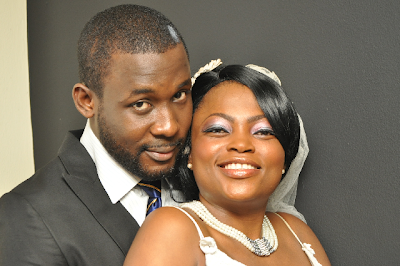
Ojukwu died in London last November and was only buried last week. If it was culture shock for those used to burying their dead a few hours after the last breath, they were in for a lengthy mystery when they were told that 97 days do not come near the record in Igboland where bodies of traditional chiefs are known to have been kept for over two years before burial.
Rivalled only by the Bini and Yoruba tribes in this aspect, the Igbo, Ojukwu’s people, are known to perform intricate burial and funeral ceremonies.
While the most elaborate performances are reserved for chiefs of the Ozo Brotherhood, Ojukwu came with an unparallel stature as the ‘Ezeigbo gburugburu’ or crowned leader of the Igbo race.
Age-old obligations
Laz Ekwueme, traditional ruler of Oko and a member of the Ojukwu burial committee, defended the 97 days it took to put together the funeral, saying wide consultations needed time to be concluded and legions of stakeholders had to meet and reach agreement on a whole number of issues.
These stakeholders included families, traditional believers, church leaders, representatives of government at federal and state levels, political associates, market unions, youth groups and about 300 community unions.
Ekwueme said Ojukwu enjoyed the same cult following in life as in death; as a result each of the stakeholders could lay legitimate claim to his body and had to be given space to fulfill age-old obligations to the dead leader.
According to Chief Okwudili Ofala Anichebe, a Nnewi indigene and kinsman of the late Ojukwu, many customs surround burial rites of an Igbo chief, though Christianity has watered down some of these traditions, in some cases rendering them extinct.
 Anichebe further explained that beyond the standard activities like masquerades, traditional music and animal sacrifices, funerals have different layers depending on the deceased background, traditional titles, gender and circumstances sorrounding the death.
Anichebe further explained that beyond the standard activities like masquerades, traditional music and animal sacrifices, funerals have different layers depending on the deceased background, traditional titles, gender and circumstances sorrounding the death.
While he claimed no insider knowledge of behind-the-scenes rites at Ojukwu’s funeral, the Nnewi chief said those who have such privileged information – like traditional priests and shrine attendants – are forbidden by Igbo laws to share them with public.
Blood sacrifices
He explained that in death Ojukwu became “public property” of the Igbo race, hence the deceased’s immediate family had limited rights to add, modify or take out items on the burial programme list.
In the not-too-distant past, the Igbo funeral template dictated the nature and pace of death rites for High Chiefs up to the mid-1980s. Dr Vincent Ofodu of the Anambra State University at Awka said because the template is not known to have been revised, it is what the Igbos have to guide them, “though common sense demands you expect substitutions in rites that demanded human sacrifices in days of old”.
The template says upon the death of an Igbo chief his family wash the body directly inside the death chamber, not in a special washroom as found in some Nigerian cultures.
Next, the body is placed on a high bush table called ‘ojo’ and covered with cloths, manila and young palm leaves called ‘omu’. In the most simplistic detail, the eldest daughter then leads a procession of family and friends around the compound, singing and dancing.
Her husband, the chief’s son-in-law, then lays a feather of an eagle, slain by a blood relative of the deceased, on top of the corpse.
the deceased, on top of the corpse.
Following this ritual come blood sacrifices which must be made by the deceased’s children. First a dog is chosen because of its power of clairvoyance and ability to see danger and evil.
The dog is beheaded and the children draw a circle around the corpse with the dripping blood. A cat is chosen because of its spectacular night vision in order to bring the dead chief good eyesight in the world beyond.
An eagle is chosen to bring the chief good eyesight in the light.
Finally a parrot is chosen because of its clear voice so that the chief will always be heard in his next life.
What's your thought on this? Is it good to bury immediately after death or whenever pleasing to the deceased family?- Leave your comment bellow or on the facebook comment post.
If you want to share this to friends on the facebook, use the "f" bellow or the share link on the facebook.

















